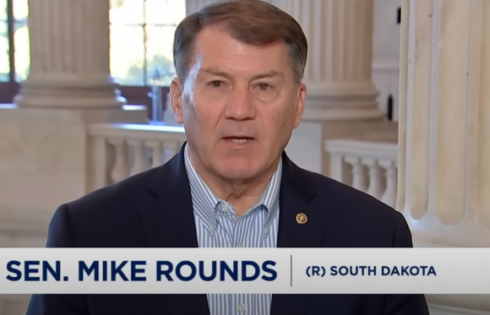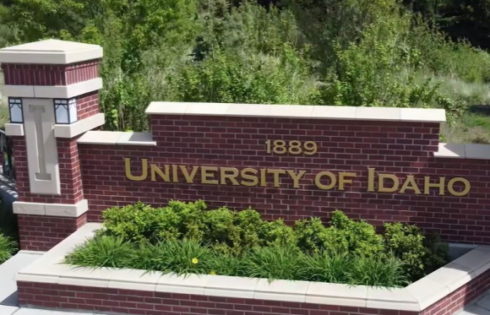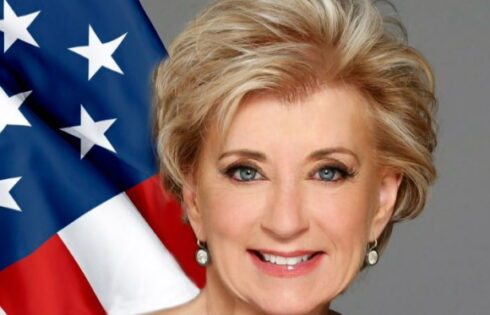
‘Back room deliberations’ are unconstitutional
Feminist and LGBTQ organizations at California State University-San Marcos together receive nearly $300,000 from the student government each year to spend as they wish, with no strings attached.
Student clubs at the taxpayer-funded institution, including its Students for Life chapter, can only apply for $500 per semester, with many strings attached.
The unlimited discretion of the Gender Equity Center and LGBTQA Pride Center to distribute and withhold mandatory student fees constitutes “back room deliberations” in violation of the First Amendment, a federal judge ruled Tuesday.
Pro-life students won their “facial challenge” to the “cosponsorship funding process” at CSUSM. U.S. District Judge James Lorenz ordered the university to implement “narrowly drawn, reasonable, and definite standards” for applying for funds maintained by the two “community centers.”
Until then, the feminist and LGBTQ centers are not allowed to use student fees from “objecting students,” such as Students for Life members, to cosponsor events.
The dispute started when Associated Students Inc. refused to cosponsor or provide funding for SFL’s event with pro-life speaker Mike Adams, a professor at the University of North Carolina-Wilmington. He debated an abortion doctor at a UNCW event earlier this year (below).
When SFL asked the two centers to cosponsor the event – at the suggestion of the student government – an official denied the request on content-neutral grounds. Asked for the criteria to apply for cosponsorship, however, the centers never responded to SFL, prompting the lawsuit.
The Alliance Defending Freedom, which represents SFL, said it was unclear what impact Lorenz’s ruling will have on funding for the two centers.
Asked if that meant the alliance would further challenge the centers’ funding, which is completely dependent on mandatory student fees, legal counsel Caleb Dalton told The College Fix it was “reviewing the court’s order and evaluating our options.”
No ‘listed criterion’ for cosponsorship
Student clubs at CSUSM have several restrictions on how they can apply for and spend money from mandatory student fees.
They can get cosponsorship from the two community centers, the ASI Board of Directors or the Campus Activities Board, but this is a black box for student clubs seeking funding. The centers have neither “listed criterion” nor a written policy on cosponsorship, and the others have no written policy on their cosponsorship process.
The only funding mechanism that doesn’t require cosponsorship is the ASI Leadership Fund, which bans clubs from using money for “honorariums and speaker fees,” according to Lorenz’s summary. They also must submit itemized budgets. These rules were the basis for the student government’s rejection of SFL’s request.
Then-president of SFL, lead plaintiff Nathan Apodaca, was skeptical the centers would cosponsor the pro-life event because of their political views. They sponsor sexually themed events such as a “Pleasure Party” and a “Kink 101” interactive workshop, the alliance said when filing suit.
Lorenz said the plaintiffs also specifically challenged the “pro-abortion” advocacy of the centers and their support for sexual activity outside heterosexual marriage.
The lawsuit accused CSUSM of unconstitutional viewpoint discrimination and compelled speech, It said SFL members paid mandatory student fees that funded the two centers, yet were not allowed to use that money for their own speech on the same terms.
Judge Lorenz first knocked down the university’s claim that the plaintiffs don’t have standing. They “clearly” do because “the undisputed evidence shows” they paid mandatory fees to support speech that violated their beliefs, and the denied funding request “cut short” their effort to bring Adams to campus.
CSUSM is also wrong that the students have to prove specific viewpoint discrimination. The policy itself gives the student government “broad discretion” that may create “an unacceptable risk of the suppression of ideas,” Lorenz wrote.
MORE: $300k for gender equity, LGBTQ centers; $0 to Students for Life
Asking about ‘purpose’ and ‘student benefit’ penalizes unpopular viewpoints
The mandatory fee charged to students when the suit was filed was $50 per semester. The following academic year, students voted to raise it to $75.
A year after the filing, the Supreme Court knocked down the imposition of “agency fees” on non-union public employees as a First Amendment violation. The alliance cited the new precedent as controlling in the SFL lawsuit.
But Lorenz said that ruling “does not call for a wholesale invalidation” of mandatory student fees. A previous Supreme Court ruling on compelled speech in the university context, known as Southworth, already rejected an “optional or refund system” as a constitutional requirement of student-fee systems.
The court there said it was “all but inevitable” that mandatory student fees will subsidize speech that offends some students. The system must “sufficiently bridle[s] the … discretion” of the fee distributors to be constitutional, however.
The university was not wrong to deny funding to SFL for the Adams’ event through the $500 application process, since the club “knowingly submitted an incomplete application” that failed to follow viewpoint-neutral rules, the judge said.
But he disagreed with the university about whether the funding process itself is viewpoint-neutral. The criteria do not provide “reasonable and definite standard[s]” to guide administrators and prevent them from “encouraging some views and discouraging others” through funding decisions.
By asking student clubs to describe the “purpose” and “student benefit” of events, decisionmakers are judging “the content of the speech and have the effect of excluding unpopular viewpoints,” Lorenz wrote. It’s also impermissible to ask clubs if they’ve held the event before, which favors “established parties.”
CSUSM must revise the ASI Leadership Fund process to be fully viewpoint-neutral, and “cannot use the mandatory fees of objecting students until specific and detailed standards guiding decision making is adopted,” the judge said.
The ASI Board of Directors also have “virtually unbridled discretion” under its bylaws to make content-based decisions about which events to cosponsor and to refuse to give an explanation when denying requests.
Lorenz mocked the university’s claim that the board’s funding process is “government speech,” pointing to ASI bylaws that specify it represents “the students” to provide services “not normally
furnished by the state budget.”
The judge said he was “troubled” that the bylaws allow the board to “hold closed sessions” on funding matters, without even “some type of recordation.” The board’s cosponsorship process cannot use fees from objecting students until it implements “specific and detailed standards guiding” the board’s discretion.
No ‘qualified immunity’ for university leaders
The feminist and LGBTQ centers may have the least circumscribed funding role of all.
Cosponsorship decisions are made case by case by the director and assistant director of the two centers, “based on their assessment of whether the proposed content serves the Centers’
learning objectives,” Lorenz wrote. There’s one problem: Those aren’t defined in the governing codes.
The judge noted that when an official got the cosponsorship request from SFL, he emailed an ASI official “about how to compile an appropriate response.” Then they had a “closed-door meeting” to discuss the matter, and the first official denied the request for alleged “budgetary reasons.”
“The Court is precluded for verifying the veracity of the denial reasoning because this meeting was neither recorded audibly nor in writing,” Lorenz wrote. “These ‘back room deliberations’ are exactly type of considerations the First Amendment is designed to prevent.”
Perhaps worst for the university, Chancellor Timothy White and CSUSM President Karen Haynes were denied “qualified immunity” against claims that they personally violated the constitutional rights of the pro-life students.
The judge noted the Southworth ruling from 2000 concerned conduct “identical to the challenged conduct here,” and the 9th U.S. Circuit Court of Appeals – which governs CSUSM – adopted the “unbridled discretion” standard in 2012.
Haynes first served as a university president in 1995 and took the CSUSM job in 2004, two years after the 7th Circuit explicitly ruled that the “absence of criteria” in distributing mandatory student fees was a First Amendment violation, Lorenz said.
“[S]he should have been aware” that CSUSM’s mechanism was against the law, he continued. White “is also on notice,” having been in the job since 2012.
The judge “correctly decided that Cal-State San Marcos can’t force student citizens to pay for advocacy of the views the university decides are orthodox and effectively exclude competing views,” Tyson Langhofer, senior counsel for the alliance, said in its press release. “There can be no marketplace of ideas where the government simply funds its favored views.”
“Public universities have no right to use their power, including mandatory student fees, to restrict speech they don’t agree with or particularly like,” said Kristan Hawkins, president of Students for Life of America, in the organization’s press release Wednesday.
MORE: Mike Adams gets abortion doctor to admit it ‘kills a human’
IMAGE: DenisProduction.com/Shutterstock






Please join the conversation about our stories on Facebook, Twitter, Instagram, Reddit, MeWe, Rumble, Gab, Minds and Gettr.